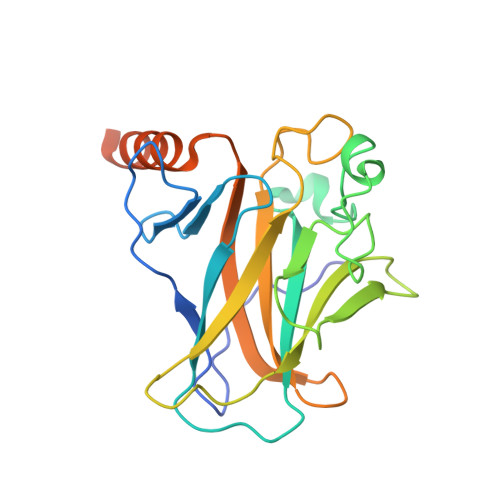Experimental and Theoretical Evaluation of the Ethynyl Moiety as a Halogen Bioisostere.
Wilcken, R., Zimmermann, M.O., Bauer, M.R., Rutherford, T.J., Fersht, A.R., Joerger, A.C., Boeckler, F.M.(2015) ACS Chem Biol 10: 2725
- PubMed: 26378745
- DOI: https://doi.org/10.1021/acschembio.5b00515
- Primary Citation of Related Structures:
5A7B - PubMed Abstract:
Bioisosteric replacements are widely used in medicinal chemistry to improve physicochemical and ADME properties of molecules while retaining or improving affinity. Here, using the p53 cancer mutant Y220C as a test case, we investigate both computationally and experimentally whether an ethynyl moiety is a suitable bioisostere to replace iodine in ligands that form halogen bonds with the protein backbone. This bioisosteric transformation is synthetically feasible via Sonogashira cross-coupling. In our test case of a particularly strong halogen bond, replacement of the iodine with an ethynyl group resulted in a 13-fold affinity loss. High-resolution crystal structures of the two analogues in complex with the p53-Y220C mutant enabled us to correlate the different affinities with particular features of the binding site and subtle changes in ligand binding mode. In addition, using QM calculations and analyzing the PDB, we provide general guidelines for identifying cases where such a transformation is likely to improve ligand recognition.
- MRC Laboratory of Molecular Biology , Francis Crick Avenue, Cambridge CB2 0QH, United Kingdom.
Organizational Affiliation:


















